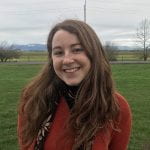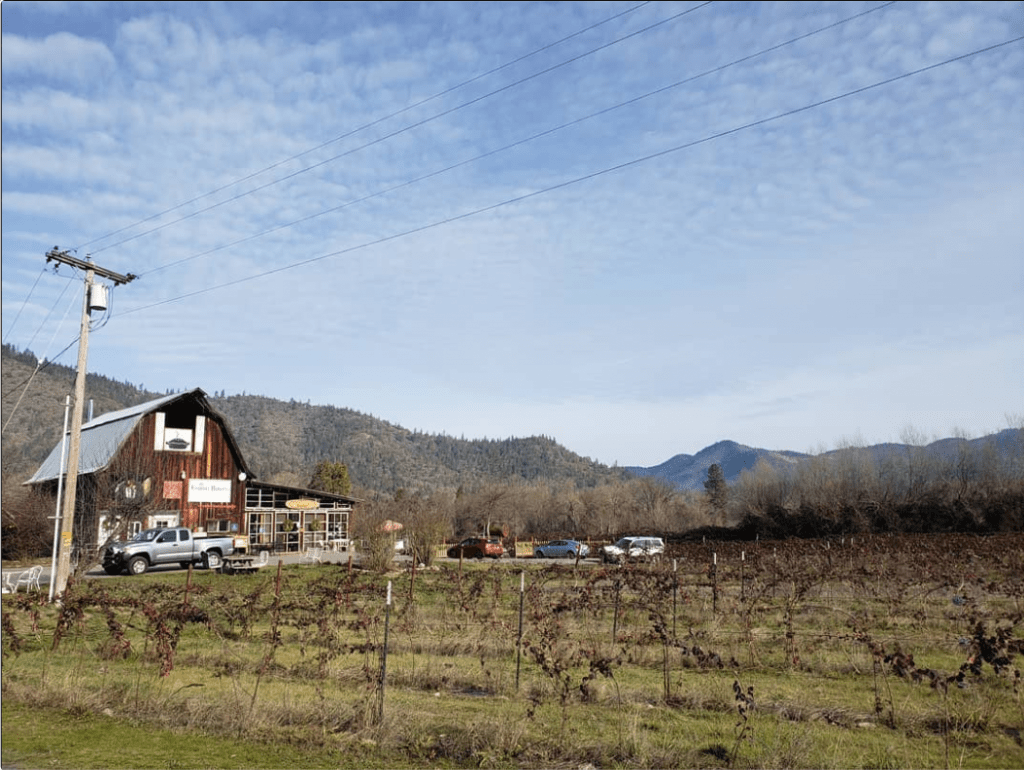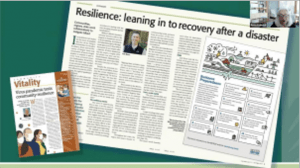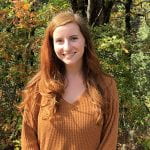By Abigail Blinn, Procurement Coordinator, Rogue Valley Food System Network and Rogue Valley Farm to School
There has been increased attention on access to quality food in the past 10-15 years, and especially this past year with a global pandemic. What has followed is an increase in resources, capacity, and funding opportunities. This trend is surely evident in the state of Oregon, with a particular interest in food hubs.
“A food hub provides the mechanism to get more healthy, locally raised food into conventional markets, making it more convenient for consumers, while also returning a larger share of the ‘food dollar’ to participating farmers,” says Anthony Flaccavento, SCALE, Inc. consultant contracted to conduct the SW Oregon Food Hub Feasibility Study.
Little pockets of the state have formed collaborations with farmers, food businesses, and eaters to streamline production and marketing. Southern Oregon wanted to see if it were possible to do so. The Ford Family Foundation, NeighborWorks Umpqua, Blue Zones Project-Umpqua (now Thrive Umpqua), and City of Roseburg funded the food hub feasibility study that started in March 2020. Over 100 farmers, buyers, and food system leaders from southwest Oregon participated. From that assessment, an analysis of production and marketing was completed and recommendations were made to address barriers in access and growth. As a RARE member with the Rogue Valley Food System Network, I was able to chime into this study in late September.
Though loosely defined, this region consists of Coos, Curry, Douglas, Josephine, and Jackson counties. There are a few assets that make a food hub in the region promising. Agricultural products in the region are vast; the coastal cranberry bogs and fish and seafood, orchard fruits, berries, and grapes for wine production, and cattle and range animals. And, the produce staples are grown throughout the five counties such as carrots, beets, potatoes, brassicas, and grains. The current market for local products serves as another asset to the region. There is a growth of the direct to the consumer market through Community Supported Agriculture (CSA) and purchasing of local products offered in retail settings has gotten much easier with more grocery stores, farm markets, and farm stands offering local products. There is even a rise in institutional purchases, spearheaded by the farm to school movement. A food hub seems like a natural fit for the area, however, a few barriers exist to have a flow regionally.
Among these barriers, the one that is not changing, are mountain passes creating geographical sub-regions that make transportation routes and physical distribution of products difficult. There are also infrastructure shortcomings, difficultly streamlining marketing efforts, and a challenge managing the flow of food regionally. Additionally, there are barriers to land access and local product affordability, being the most prominent barriers to establishing a food hub. These challenges also influence each other, making solutions that much more complicated. This is where RARE arrives to move mountains and save the day! Just kidding, that’s where the incredibly dedicated food system movers and shakers of the region once again show up to address these challenges. It just so happens that southern Oregon has a food system RARE member to be a part of the effort.
Several recommendations were made following the food hub feasibility study. One is to form working groups around the recommendations. The study recommended setting up a regional implementation team to guide the study’s seven primary recommendations. In consultation with the Food Hub Study Core Team, a few organizations were approached to help lead this effort based on their level of staff capacity including Rogue Valley Food System Network (RVFSN), Otterbee’s Market, Umpqua Valley Farm to School and Blue Zones Project-Umpqua (now Thrive Umpqua). Thus, the Southern Oregon Food Alliance (SOFA) was formed as the regional implementation team with RVFSN serving in the role of convener for the team. The network connects the community to local producers, facilitates the sharing of resources, communicates local events and happenings on the web, and advocates for a local and resilient food system in many other ways. It was a perfect fit for RVFSN to take on something to help our region and the bordering counties of Jackson and Josephine with local food access.
With RVFSN having a bit of added capacity, they, along with Otterbee’s Market, and Umpqua Farm to School, were able to form an implementation team. As of now, we are forming the working groups and collaborating with other regions about the feasibility study itself. Many organizations and individuals have raised their hands to collaborate and leverage each other to address these recommendations. Stay tuned as we move forward as the Southern Oregon Food Alliance (SOFA)!
 About the Author, Abigail Blinn: Abigail grew up in the rolling hills outside of Gettysburg, PA, having an interest in food, nutrition, and agriculture early on. She attended Penn State University, went on to pursue a dietetic internship at the University of New Hampshire, and received her Registered Dietitian Credentials. After dabbling in various focus areas of nutrition including hospitals, food banks and pantries, extension services, food service management sites, and research settings, she felt compelled to address the root cause of many nutrition-related illnesses and its relation to food security. Abigail is thrilled to contribute to regional solutions identified by Southern Oregon community members who know this local food system best. She is also an outdoor enthusiast – taking any chance she gets to climb rocks, ski mountains, and exist in the forest.
About the Author, Abigail Blinn: Abigail grew up in the rolling hills outside of Gettysburg, PA, having an interest in food, nutrition, and agriculture early on. She attended Penn State University, went on to pursue a dietetic internship at the University of New Hampshire, and received her Registered Dietitian Credentials. After dabbling in various focus areas of nutrition including hospitals, food banks and pantries, extension services, food service management sites, and research settings, she felt compelled to address the root cause of many nutrition-related illnesses and its relation to food security. Abigail is thrilled to contribute to regional solutions identified by Southern Oregon community members who know this local food system best. She is also an outdoor enthusiast – taking any chance she gets to climb rocks, ski mountains, and exist in the forest.


